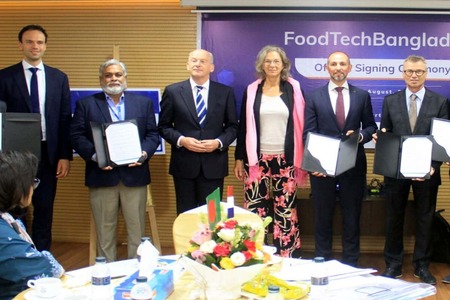
Amendment in the POCTA Act likely to save skin
YarnsandFibers News Bureau 2020-07-17 11:39:22 – AustraliaWoolgrowers in New South Wales have been asked to present their case to the POCTA (Prevention Of Cruelty to Animals) Act, as the Legislative council of the state looks to implement new laws that bring down animal cruelty, with a view of banning mulesing outright by 2023.
Mark Pearson of the council has created many campaigns to protect Australian sheeps welfare. Pressing this issue ahead the committee from the Upper House has launched an inquiry that looks into the POCTA Act. The inquiry suggests that an independent statutory body, Independent Office of Animal Protection, be established to oversee the framework of animal welfare.
To acquire information as to where the NSW’s native wool growers stand with the proposed changes to the bill, they were asked to fill an online survey. The survey reports that 80% of the producers welcomed mandating pain relief before mulesing.
Mulesing, introduced over 40 years ago, has only divided the stakeholders due to the animal welfare implications of the producers. It is a technique that was introduced in which the wool-bearing skin on the sheep’s breech is cut away to prevent parasitic infection such as flystrike.
The Legislative Council in the year 2016 was looking to implement the trailing of pain relief prior to mulesing however, this was restrained by the police and was told that such acts required to be specifically amended in the NSW POCTA (Prevention of Cruelty to Animals) Act.
In 2019 Pearson outlined plans to amend the bill stating it as “a major evolution in agriculture”. The authorities in the state of Victoria also stated making similar changes in their bill. At the time Pearson said that he hadn’t expected other states to take part in the mandate pain relief for lamb.
As a result of combined efforts Victoria, announced that it was a legal requirement for woolgrowers to administer pain relief prior to mulesing on July 1, 2020. NSW is expected to follow suit and bring in changes to the POCTA Act, which could eradicate mulesing as a practice by 2023.
Pearson claims that their priority focused on the wellbeing of the animals however, he also felt that it was in the best interest of the wool growers to have some assurance from the government about where this mulesing was going.
He also stated that the federal standing committee of animal welfare had informed the industry that mulesing would not be tolerated for long.
Mark Murphy, an Australian merino wool grower said that the best alternative for mulesing already exists. He continued to say that it is a type of strain of merino that is being bred in different climatic areas in Australia.
Murphy also assures the producers that this strain is more productive than traditional merino as it is in line with animal welfare protocols and requires very low to nil chemical input. It also has a higher quality wool process dyes, wears better and is easier to manage.
All this relies on how fast the bill progresses and whether this type of production is a feasible replacement. Whether this wool can be made to meet demands is still a big question.
Market Intelligence
Ask for free sample Report

experience
Customer Base
dedicated team
Countries Served Worldwide









